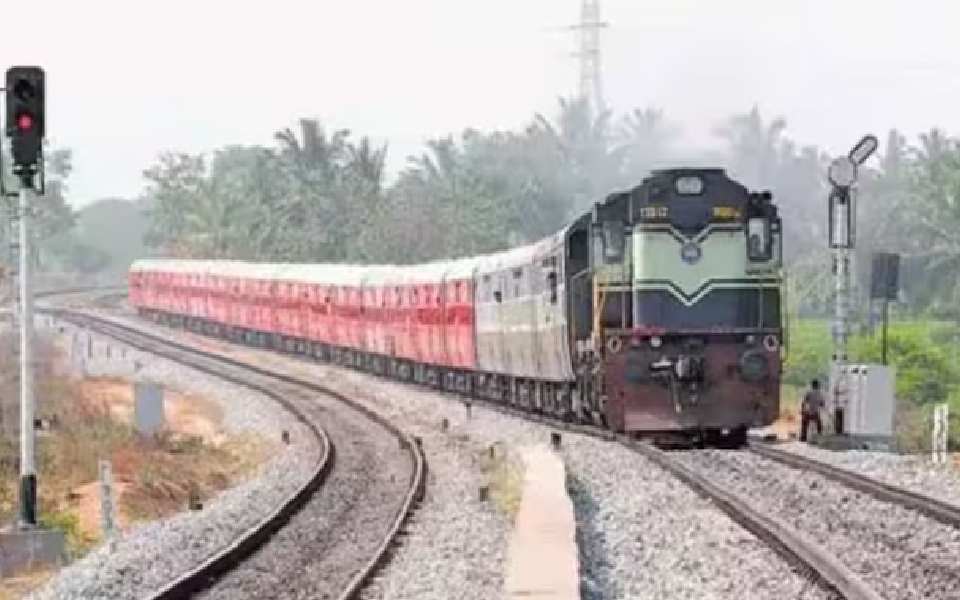The Central and Western Railway zones reported a decrease in the number of deaths over time.The Railways notified the Bombay High Court on Wednesday that over 52,300 people have passed away on Mumbai's suburban train network in the previous nearly 20 years, according to Live Law.The high death rate among Mumbai local train commuters was being discussed by a bench led by Chief Justice Devendra Kumar Upadhyaya.
Yatin Jadhav, the petitioner, had highlighted a number of issues that contribute to fatalities on the suburban train system.
In response to orders the court had issued in June, the Western Railway and the Central Railway filed affidavits on Tuesday and Wednesday. Local trains in the Mumbai Metropolitan Area are run by the two railway zones. According to The Indian Express, almost 23,000 people lost their lives on Western Railway routes between June 2024 and 2005. Between June 2024 and June 2009, there were almost 29,300 fatalities on Central Railway lines.
According to India Today, the Western Railway told the court that fewer people had died in previous years. In 2023, 936 people had died and 984 had been injured, compared to 1,084 deaths and 1,517 injuries in 2016.
According to an affidavit obtained by India Today, Santosh Kumar Singh Rathore, the senior divisional security commissioner for the Western Railway, stated that while the administration is sensitive to every incident involving injury or death, its efforts will not be successful until the passengers cooperate better.
It further stated that no new services could be introduced and that more than 100% of the train's capacity is now being used.
According to India Today, the Central Railway notified the court that there is an issue with widespread trespassing on the tracks.
The extra divisional railway manager (administration) of Central Railway's Mumbai division, Shashi Bhushan, told the court that there is a considerable risk of mortality due to slums being too close to the railway tracks.
According to Central Railways, during the past 15 years, fewer people have died while the railway network's capacity to carry passengers has grown.
1,782 people died and 1,614 people were injured in 2009. In 2023, these figures dropped to 1,221 fatalities and 938 injuries, according to the Central Railway.
According to The Indian Express, during the June hearing, the court ordered the general managers of the two railway zones to investigate the issue and requested affidavits regarding the precautions taken to prevent similar mishaps.
Let the Truth be known. If you read VB and like VB, please be a VB Supporter and Help us deliver the Truth to one and all.
Panaji (PTI): As part of a crackdown against tourist establishments violating laws and safety norms in the aftermath of the Arpora fire tragedy, Goa authorities on Saturday sealed a renowned club at Vagator and revoked the fire department NOC of another club.
Cafe CO2 Goa, located on a cliff overlooking the Arabian Sea at Vagator beach in North Goa, was sealed. The move came two days after Goya Club, also in Vagator, was shut down for alleged violations of rules.
Elsewhere, campaigning for local body polls, AAP leader Arvind Kejriwal said the fire incident at Birch by Romeo Lane nightclub at Arpora, which claimed 25 lives on December 6, happened because the BJP government in the state was corrupt.
An inspection of Cafe CO2 Goa by a state government-appointed team revealed that the establishment, with a seating capacity of 250, did not possess a no-objection certificate (NOC) of the Fire and Emergency Services Department. The club, which sits atop Ozrant Cliff, also did not have structural stability, the team found.
The Fire and Emergency Services on Saturday also revoked the NOC issued to Diaz Pool Club and Bar at Anjuna as the fire extinguishers installed in the establishment were found to be inadequate, said divisional fire officer Shripad Gawas.
A notice was issued to Nitin Wadhwa, the partner of the club, he said in the order.
Campaigning at Chimbel village near Panaji in support of his party's Zilla Panchayat election candidate, Aam Aadmi Party leader Kejriwal said the nightclub fire at Arpora happened because of the "corruption of the Pramod Sawant-led state government."
"Why this fire incident happened? I read in the newspapers that the nightclub had no occupancy certificate, no building licence, no excise licence, no construction licence or trade licence. The entire club was illegal but still it was going on," he said.
"How could it go on? Couldn't Pramod Sawant or anyone else see it? I was told that hafta (bribe) was being paid," the former Delhi chief minister said.
A person can not work without bribing officials in the coastal state, Kejriwal said, alleging that officers, MLAs and even ministers are accepting bribes.





